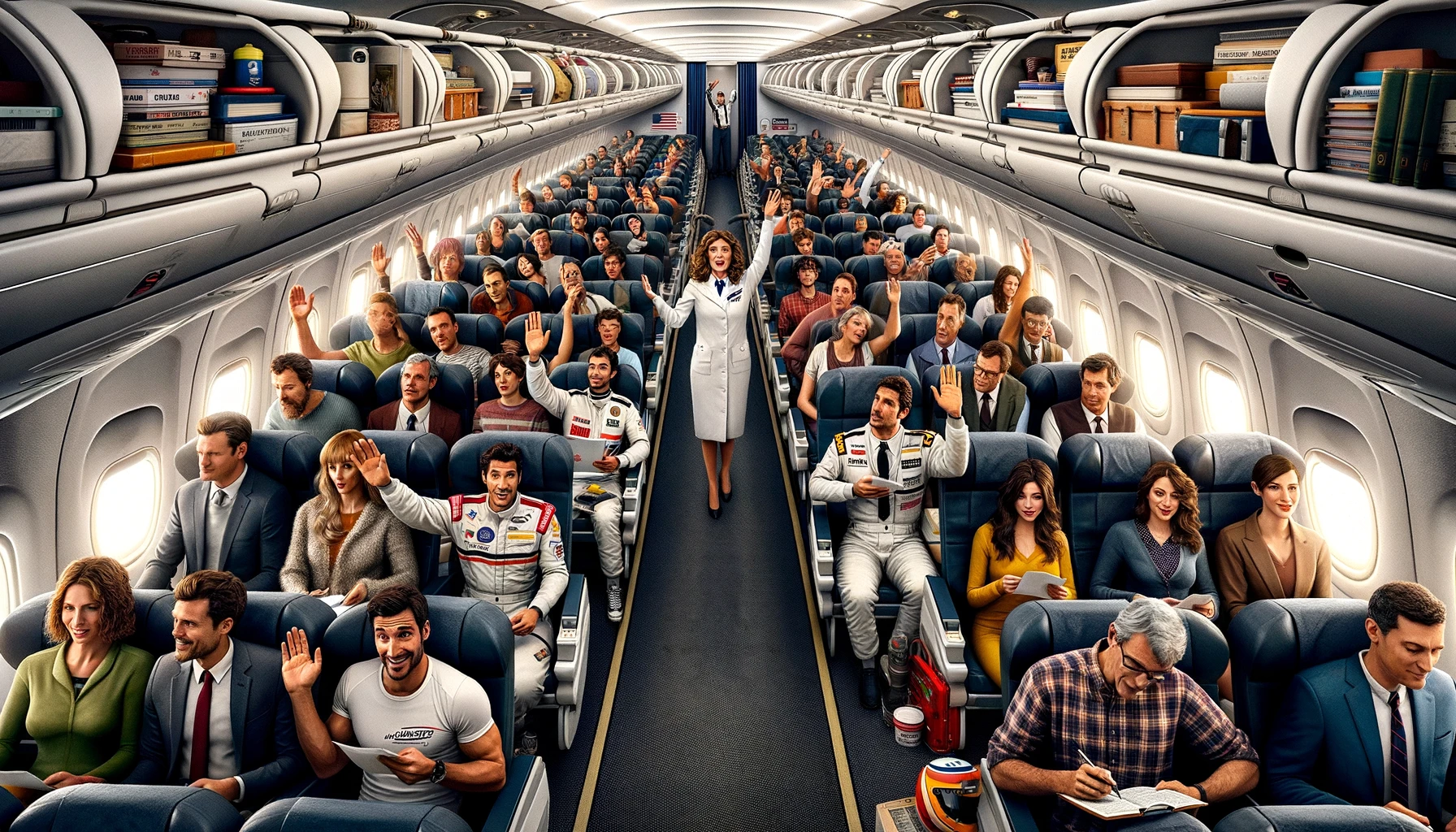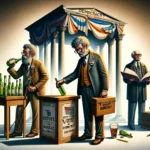Imagine a situation where an airplane, ready for flight with 350 passengers, is left without a pilot due to an emergency. In an unexpected turn of events, the passengers decide on an unusual approach: they will vote to choose a replacement pilot among themselves.
Ten candidates volunteer for this peculiar duty: two athletes, an actress, a professional driver, two engineers, a doctor, a plumber, and three students. Each of them presents themselves and argues why they deserve to be chosen.
The driver claims that driving a van is not much different from flying an airplane, the doctor emphasizes their commitment to preserving human lives, the engineers say they will rely on their technical knowledge of flight principles, and the students promise an interesting journey. The actress, on the other hand, does not talk about flying but focuses on her acting achievements.
After the vote, one of the athletes receives the most votes and heads towards the cockpit. “Fasten your seatbelts, we’re taking off,” is heard over the PA system. Of course, the plane never takes off.
This absurd story serves as a metaphor for political elections, where often incompetent masses choose incompetent people for important positions. Anyone can run for anything, and the only requirement is to get more votes than the others.
An educated populace should be able to make wise choices, which is why advocates of democracy emphasize the importance of a good education system. However, nowhere is the majority of the population educated and familiar with all candidates and circumstances, as the right to vote is granted to every citizen.
The result of such a system can be compared to an airplane which, in the best case, will not take off, and in the worst case, will end tragically, just like states governed by incompetent individuals chosen by the masses.





